In his inaugural address, John F. Kennedy famously urged, “Ask not what your country can do for you; ask what you can do for your country.”
That sentence shines with rhetorical beauty and balance, but might be more accurate by changing one word: “Ask not what your country can do for you; ask what you can do for your community.”
By community, I mean our families, our friends, and the place where we live. Make those our ambitions, and we boost our country in the bargain.
Unfortunately, we live in a time when many Americans of all political persuasions ask what their country can do for them. Instead of seeking solutions to problems close to home, they instead ask big government to take them under its wing, forgetting that when they do so, they’re exchanging their liberties for a mess of pottage.
Today’s public education system serves as a stellar example of the consequences of this lopsided swap. In her essay, “Ending the School Grift,” Sam Sorbo contrasts the enormous amount of money governments annually spend on public schools with the diminishing returns from that education. “In 2019,” Sorbo reports, “per-pupil spending averaged $13,187, with total K-12 expenditures reaching $739 billion.” She notes, “A significant portion goes to administrative overhead, infrastructure projects, and external consultants, rather than directly benefiting classrooms.” Despite these disbursements, in 2023 only about 25% of eighth graders were grade-proficient in reading and math.
Little has changed since 2019 other than the ever-increasing sums lavished on public schools. Education Data Initiative reports in early 2025 that spending per pupil for grades K-12 was $17,277, with the amount for all students totaling $857.2 billion annually.
What might happen if the Department of Education was either closed or radically reduced in size, perhaps becoming a small investigative agency of a hundred people or so whose only purpose was to develop or recommend guidelines and strategies for learning? What if state agencies were likewise reduced in size, charged with creating and enforcing regulations and general standards while otherwise leaving classroom control to local government and school boards?
These changes would not only dramatically slash the costs of our schools but would also put the responsibility for education squarely where it belongs, on the community. Today few people involved in the amorphous blob that is our public school system bear the blame for its failure. Put responsibility in the hands of locals, and we’d see that situation change in the blink of an eye.
Recent reactions to our country’s natural disasters underscore this point. In last year’s catastrophic Hurricane Helene, for instance, which some of my family members and good friends living in western North Carolina witnessed first-hand, the news media from both ends of the political spectrum all too often focused on the response of the Federal Emergency Management Agency (FEMA). Reporters and citizens alike either praised or deprecated the efforts of FEMA, unintentionally revealing our obsessional dependence on government. The real heroes and helpers in that catastrophe were the boots-on-the-ground folks, local officials, church groups, volunteers, and all the others who, from near and far, rushed to the aid of their neighbors and fellow Americans.
Responsibility is the big lesson here. When we take responsibility for our ourselves, our families, and our communities, we no longer need a big brother government such as we have now. The locals know their community far better than those who are hundreds or even thousands of miles away in Washington, D.C.
Even more, the locals love their communities in ways impossible for government bureaucrats. There’s no mystery here. We love what we know, and we want to nourish and protect what we love.
So, if we want to do something for our country, we can start with community as I’ve defined it above. The ways and means of doing so are simple, really:
- Work hard
- Practice the virtues
- Be kind whenever possible
- Raise good children
- Devote some time, in however small a way, to helping others
- Seek God and find a place of worship that matches your beliefs
- Look to government as a last resort rather than a go-to first option
Most of all, never lose hope. The headlines may be black and threatening as storm clouds, but if we keep our eyes open, we find the goodness of ordinary Americans all around us.
Brighten the corner where we are, and our country will be a better place.
—
The republication of this article is made possible by The Fred & Rheta Skelton Center for Cultural Renewal.
Image Credit: Pexels
19 comments
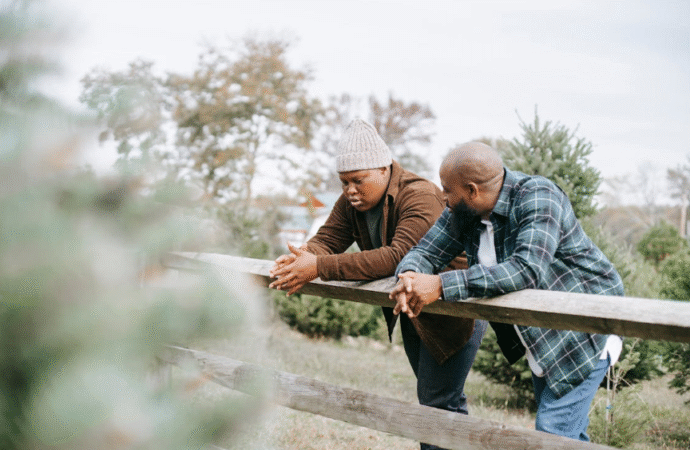
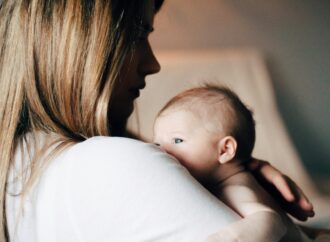
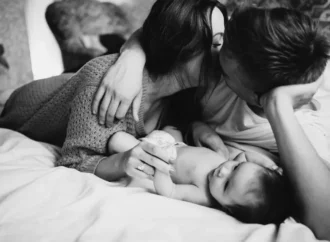
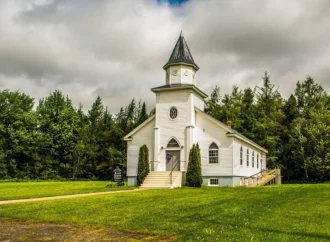
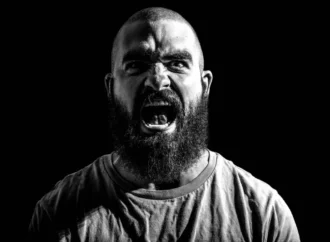





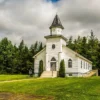




19 Comments
CynthiaADavis
July 22, 2025, 3:31 amI get paid more than $120 to $130 per hour for working online. I heard about this job 3 months ago and after joining this i have earned easily $15k from this without having online working skills.
This is what I do……. Www.Works6.Com
REPLYNorrisAHolmes@CynthiaADavis
July 22, 2025, 5:10 amGoogle pay 500$ per hour my last pay check was $19840 working 10 hours a week online. My younger brother friend has been averaging 22k for months now and he works about 24 hours a week.
REPLYJust Open This Website…….. http://www.get.money63.com
illiana@NorrisAHolmes
July 22, 2025, 1:07 pm●▬▬▬▬PART TIME JOBS▬▬▬▬▬●
I am making $165 an hour working from home. i was greatly surprised at the same time as my neighbour advised me she changed into averaging $ninety five however I see the way it works now. I experience masses freedom now that i'm my non-public boss. that is what I do……
↓↓↓↓COPY THIS SITE↓↓↓↓
HERE► http://Www.Join.Work43.com
REPLYKarenB@NorrisAHolmes
July 23, 2025, 11:38 amEverybody can earn 220$/h + daily 1K… You can earn from 6000-12000 a month or even more if you work as a part time Work…It’s easy, just follow instructions on this page, read it carefully from start to finish… It’s a flexible job but a good eaning opportunity..go to this site home tab for more detail thank you…….
REPLY.
Reading This Article:———- http://Www.Cash43.Com
Repavotdilit@CynthiaADavis
July 23, 2025, 1:36 amHow many Time You lost This Droid risk… in case you wana get a reasonable income via pc and when you have a dependable internet connection then you in reality ought with a view to recognize how you’re making your earnings through pc.
Work At Home For USA My buddy’s aunt makes $164/hr on the computer. She has been unemployed for eight months but last month her but pay check was $25,000 just working on the computer for a few hours.
This Website Open Here—————————>>> http://www.get.money63.com
REPLYLauren Gregory@CynthiaADavis
August 6, 2025, 9:52 amWith joy in my heart and gratitude to God almighty i have come to tell the general public that Lord Gerald herbal medicine is the best remedy for Herpes and HIV/AIDS, I was a carrier of Herpes virus and I saw a testimony on how Lord Gerald cure Herpes, I decided to have a contact with him and asked him for help and he started the remedies for my health and prepare the herbal medicine for me which i use to cure myself. Thank God, now everything is fine, I’m cured by Lord Gerald herbal medicine, I’m very thankful to Lord Gerald and i will not stop publishing his name on the internet because of the good work he did for me, You can reach him on his email: [email protected] or
WhatsApp: +14242983869
LORD GERALD CAN AS WELL CURE THE FOLLOWING DISEASE:-
1. HIV/AIDS
2. HERPES
3. CANCER OF ALL KINDS
4. HSV
5. Hepatitis A,B,C
6. Diabetes
7. Parkinson’s disease
8. C.O.P.D
9.ALS
10. Coronary Artery Disease (Ischemic Heart Disease)
11. Alopecia
12.Bipolar disorder
13.Bedwetting
14.Carpal tunnel syndrome
15.Celiac disease
16.Ear Infections
17.Endometriosis
18.Epilepsy
19.Chlamydia
20.Syphilis
21.Gonorrhea
Natural remedy for curing HERPES and HIV. WhatsApp Lord Gerald on +14242983869
REPLYSusan Bickford
July 22, 2025, 3:33 amIt's A Great News to Celebrate with you Viewer, I am truly living the life I have been looking for after Dr Kachi made me win my Powerball Lottery, I had been playing for a good 8years. It was a friend of mine who directed me to Dr Kachi because my friend Nancy has won the Powerball so many times and I don't know how she got the match six numbers to play and win a very big amount of money, then the last time she won the Mega Millions I told her to tell me the secret on how she win. That's when she started telling me about the powerful Dr Kachi who has been her helper. and she gave me Dr Kachi Text/Call Number:+1 (209) 893-8075 I texted the greatest spell caster Dr Kachi and I told him I wanted to win my Powerball with his spiritual rightful number and he told me I should give him 2hours to get everything done and hopefully Dr Kachi do it, and give me a winning numbers to play my ticket that make me win the prize of $223.3 Million Dollars Powerball lottery Tuesday i bought the winning ticket at the Carlie C’s IGA store in Hope Mills, that changed my life for good today, and Dr Kachi a strong spell caster and trust him when he says the results will manifest it's Truth, God bless you Dr kachi for your kind help also can Email: [email protected] or website:: https://drkachispellcaster.wixsite.com/my-site
REPLYAminawajid
July 22, 2025, 4:34 amI get paid over $130 1 to 3 hours working from home with 2 kids at home. I never thought I'd be able to do it but my best friend earns over $27k a month doing this and she convinced me to try. The potential with this is endless.
REPLYHeress———–> http://www.now.jobs67.com
Repavotdilit
July 22, 2025, 5:10 amGoogle pay 500$ per hour my last pay check was $19840 working 10 hours a week online. My younger brother friend has been averaging 22k for months now and he works about 24 hours a week.
REPLYJust Open This Website…….. http://www.get.money63.com
LethaCReilly
July 22, 2025, 6:14 amI get paid more than $100 to $500 per hour for working online. I heard about this job 3 months ago and after joining this I have earned easily $20k from this without having online working skills . Simply give it a shot on the accompanying site…
REPLYHere is I started.…………>> https://Www.joinSalary.Com